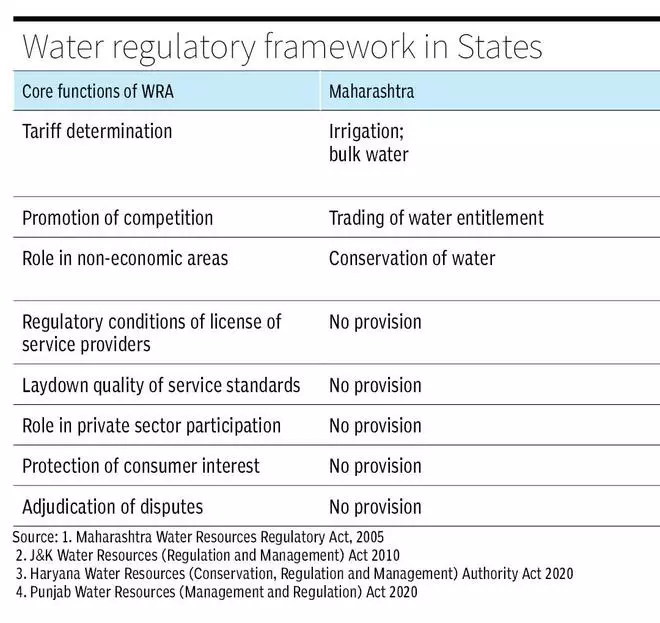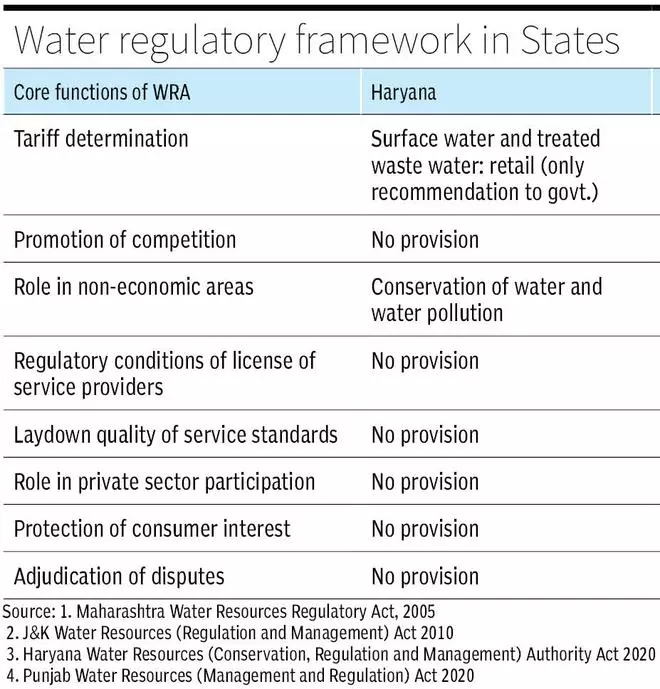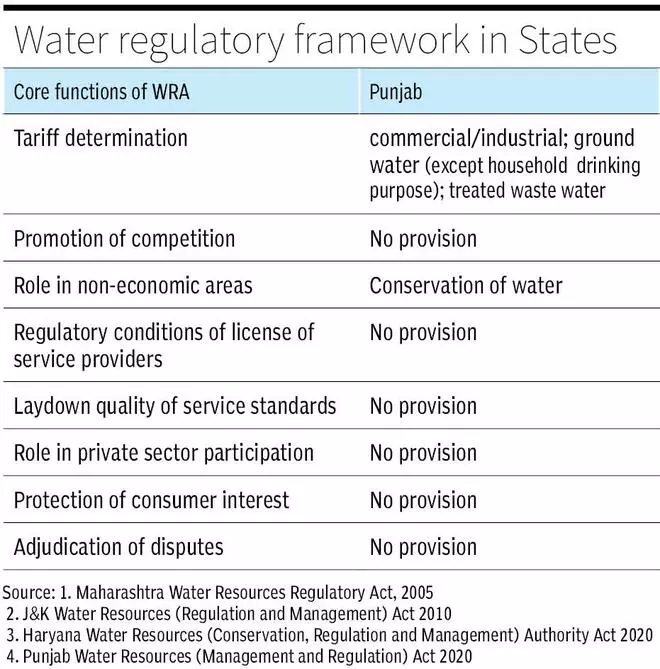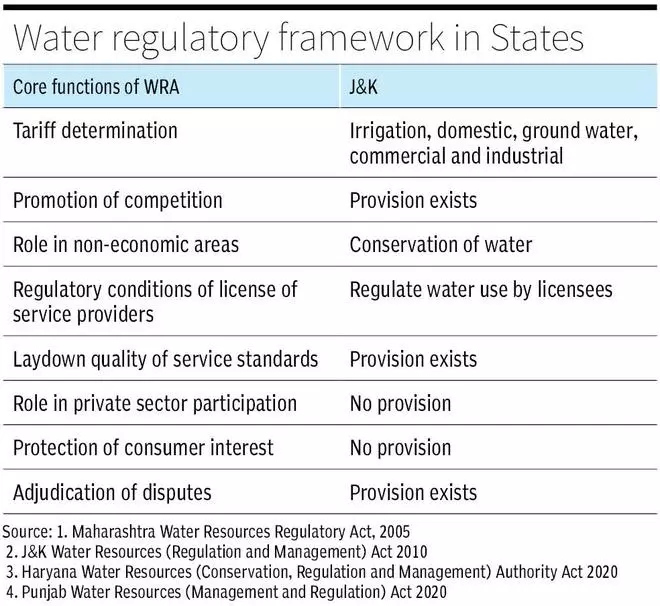

Water regulation: Uniform norms | Photo Credit: The Hindu
Many countries have set up an independent water regulatory authority (WRA), and decentralised system of water governance with government playing the role of a facilitator.
An ideal framework of independent regulation minimises political interference in a sector, brings in technical expertise and efficiency, and provides a level playing field for private players.
In India, several policy initiatives in recent years have been taken for introducing independent regulation in the water sector. The National Water Policy (NWP) 2012 strongly encourages the establishment of “autonomous” water regulatory authorities for fair pricing of water uses, and for cost recovery.
The 14th Finance Commission (2015) also recommended that States should consider setting up of statutory water regulatory authorities so that the pricing of water for domestic, irrigation and other uses can be determined independently and in a judicious manner.
Maharashtra is the first State to enact the Water Regulatory Authority Act in 2005 and followed by 11 other States — Arunachal Pradesh (2006), Uttar Pradesh (2008), Andhra Pradesh (2009), Jammu & Kashmir (2010), Kerala (through ordinance, 2012), Gujarat (through notification, 2012), Punjab (2020), Haryana (2020), Telangana (2009), Uttarakhand (2013), and Jharkhand (2014).
Unfortunately, only four States, — Maharashtra, Haryana, Punjab and J&K — have a Water Regulatory Authority.




In any independent regulation, the Water Regulatory Authority (WRA) should have core functions, recommendatory functions and advisory functions.
Table 1 shows that there is no uniformity in the framework of regulatory legislation across the States. Further, there is no model central legislation in the water sector as we have seen in the electricity sector. There is no consensus across States even on the model regulatory framework as framed by the erstwhile Planning Commission (2011).
As a result, there is no uniform approach in adopting water regulatory framework in India, and each State has enacted the WRA legislation independently. There is also no transparent process for selection of the members of WRA across States. There is bureaucratic predominance for the chairman’s post in the WRA.
Minimum attention has been given to ensure transparency of the regulatory process, accountability of the regulator, and facilitating participation of stakeholders of the water sector.
Many core functions for independent regulation in water sector have also not been adopted by the States. These are protection of consumer interest, laying down of safety standards, adjudicating disputes and differences involving stakeholders, promotion of competition, promoting economy in the supply of water and sewage services, and framing principles relating to terms and conditions of license.
The current regulatory framework does not also ensure a balance between “market based” approach and “government’s social commitment”.
The enactment of non-uniform water regulatory legislation by various States shows that there is a need for enacting a draft model Bill on the subject. The Centre should evolve a consensus to develop a model Bill after due consultation with the key water sector players including States and other stakeholders.
Second, the model Bill should specify various functions of WRA, and also deal, with its autonomy, accountability, powers, relationship with government; in the case of autonomy, there should be provisions on transparent selection of regulators, qualification and disqualification of members, commercial employment of members, tenures of members, reappointment of members, transparent removal of members, power to hire best experts by regulator, and existence of Regulatory Fund. There should be a State Water Resource Council, the highest policy making body, whose policy functions should deal with overall water sector management.
Third, once the model regulatory framework is agreed to at all levels including States, there is a need to enact a central legislation before its adoption by the States. Since water is a State subject, framing a central legislation will require taking recourse to Article 249 or 252 of the Constitution for its consideration by Parliament.
Fourth, a high degree of political commitment at all levels is a must for ensuring the success of independent regulation in the water sector.
The writer is Distinguished Fellow, The Energy and Resources Institute (TERI) and former Secretary, Union Ministry of Water Resources
Published on May 29, 2024

Comments
Comments have to be in English, and in full sentences. They cannot be abusive or personal. Please abide by our community guidelines for posting your comments.
We have migrated to a new commenting platform. If you are already a registered user of TheHindu Businessline and logged in, you may continue to engage with our articles. If you do not have an account please register and login to post comments. Users can access their older comments by logging into their accounts on Vuukle.